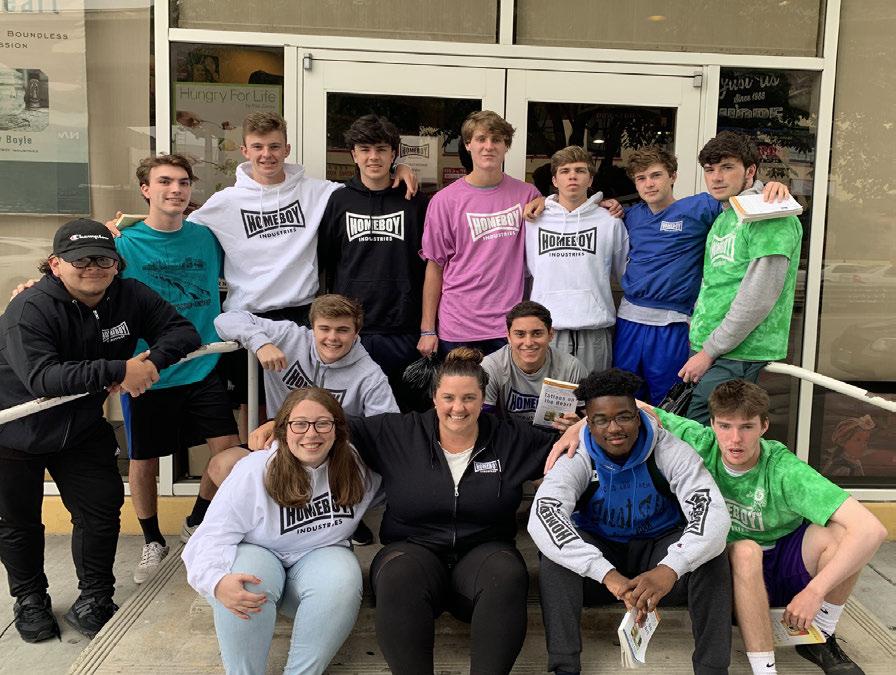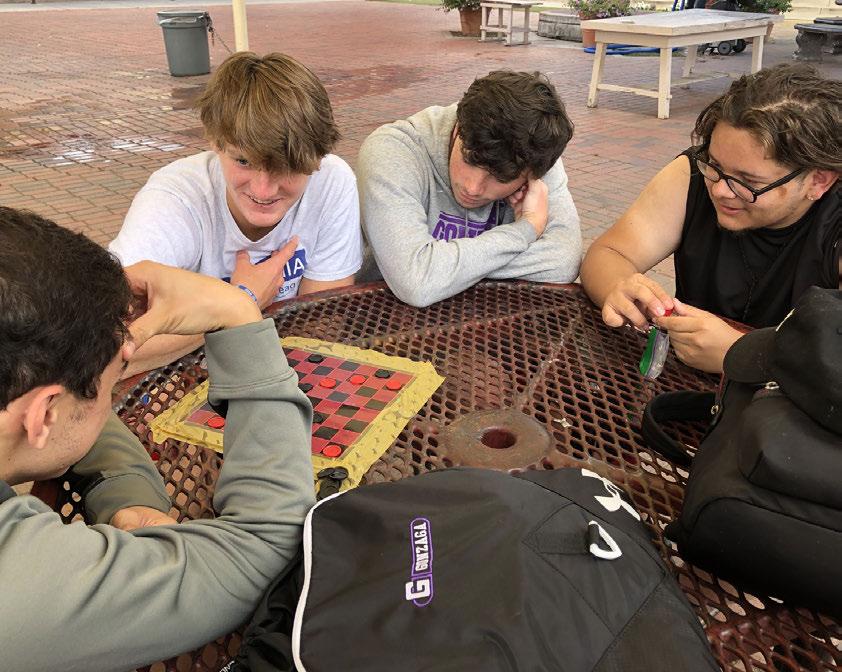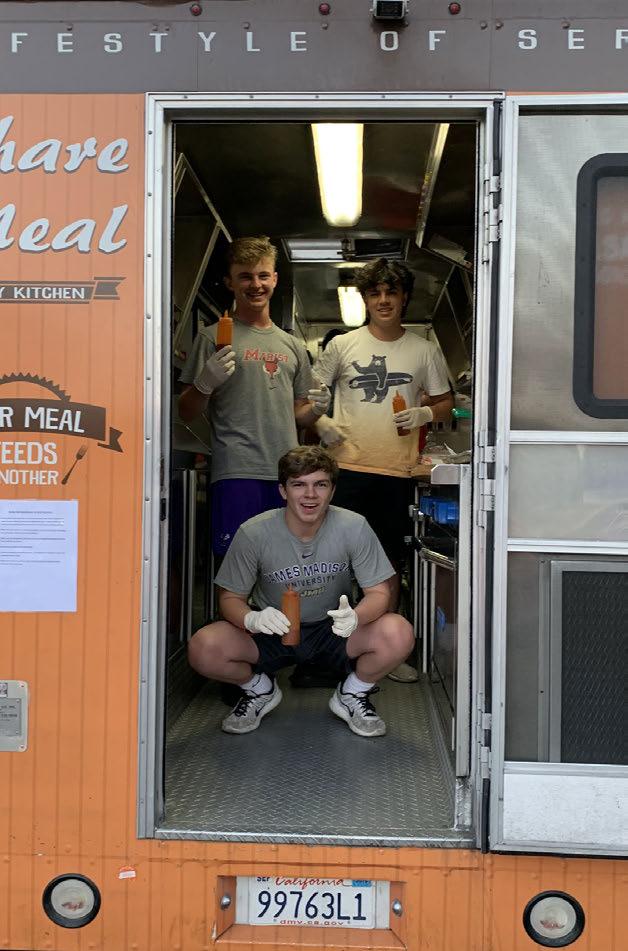
5 minute read
Learning by Heart
A group of Gonzaga students experiences first-hand the power of compassion, kindness, and kinship.
By Caitlin Farley and Danielle Flood
This summer, Gonzaga sent 12 rising seniors and two chaperones to Los Angeles, California on a new service immersion trip sponsored by the Office of Campus Ministry. The inaugural group entered into a community impacted by poverty, immigration, and gang culture—but also defined by resilience and redemption. After the trip, students were asked to write reflections; the quotes in this story are taken from those reflections.
Home base for the week was Dolores Mission Church and School, a Jesuit parish in Boyle Heights, Los Angeles—the neighborhood and community where Father Greg Boyle, S.J. founded a nonprofit called Homeboy Industries. Father Boyle had become the pastor of Dolores Mission, the poorest parish in the Los Angeles archdiocese, in 1986. At the time, the parish served a community with the highest concentration of gang activity in Los Angeles. Today, the Jesuit parish houses a homeless shelter, a school, an early childhood education center, and other programs designed for the residents of this underserved community.

Before the trip began, students were asked to read Father Greg’s bestselling book, Tattoos on the Heart. They were aware of the parish’s history and had discussed the idea that radical love and kinship can transform lives. From the moment the students stepped out of the vans into Dolores Mission, they could sense this incredible community’s spirit and heart. On the way into Mass on the first night, the pastor of Dolores Mission greeted Gonzaga students with a warm, “Welcome home!”
The students spent much of the week in Skid Row, a neighborhood marked by overcrowding, homelessness, and extreme poverty. Through a wide variety of service opportunities, Gonzaga students learned how diverse organizations tackle the complicated issues surrounding poverty. They delivered burritos on foot on the streets of Skid Row, served breakfast restaurant-style in a soup kitchen, and managed a market offering free groceries. Gonzaga students met and talked with people living in tents on Skid Row, families experiencing homelessness, and others living in poverty in Los Angeles.

The cornerstone of the week was the visit to Homeboy Industries, the largest gang intervention, rehab, and re-entry program in the world. Located in downtown Los Angeles, Homeboy Industries offers a variety of programs for high-risk youth, former gang members, and the formerly incarcerated including mental health counseling, legal services, gang tattoo removal, and work-readiness training. Gonzaga students toured Homeboy Industries and visited several of the on-site businesses that are run by former gang members such as Homeboy Silkscreen & Embroidery and Homegirl Cafe. The tour guides, servers, receptionists, and cashiers they met were all former gang members. These new friends shared their stories of unimaginable tragedy and hardship, followed by stories of forgiveness and hope.


The group returned to Gonzaga with new perspectives on urban poverty and social justice and new friends in each other and the communities surrounding Homeboy Industries and Dolores Mission. They also brought home a mission of their own: The radical love and kinship they encountered on this trip was now theirs to take home and share.


Science teacher Ms. Caitlin Farley and Assistant Director of Campus Ministry Ms. Danielle Flood served as faculty chaperones for this trip.

